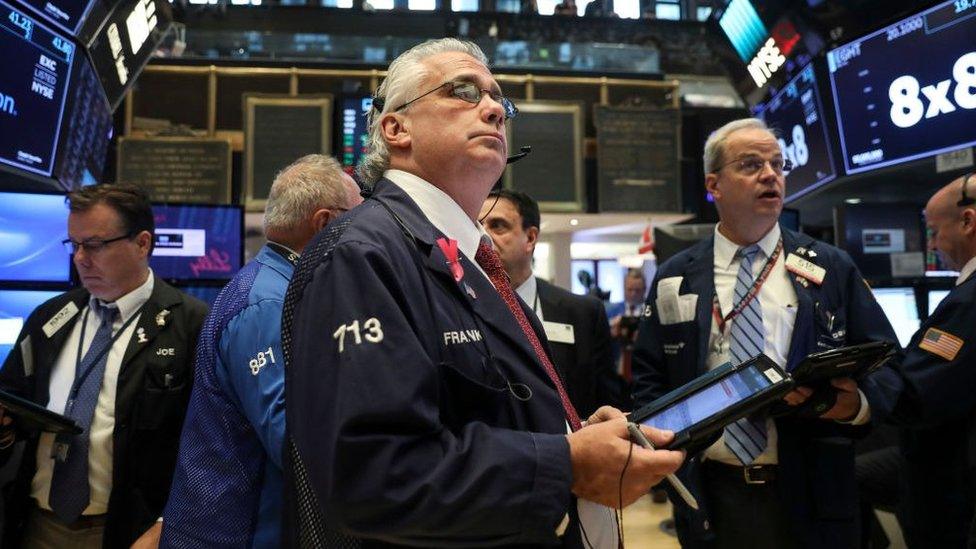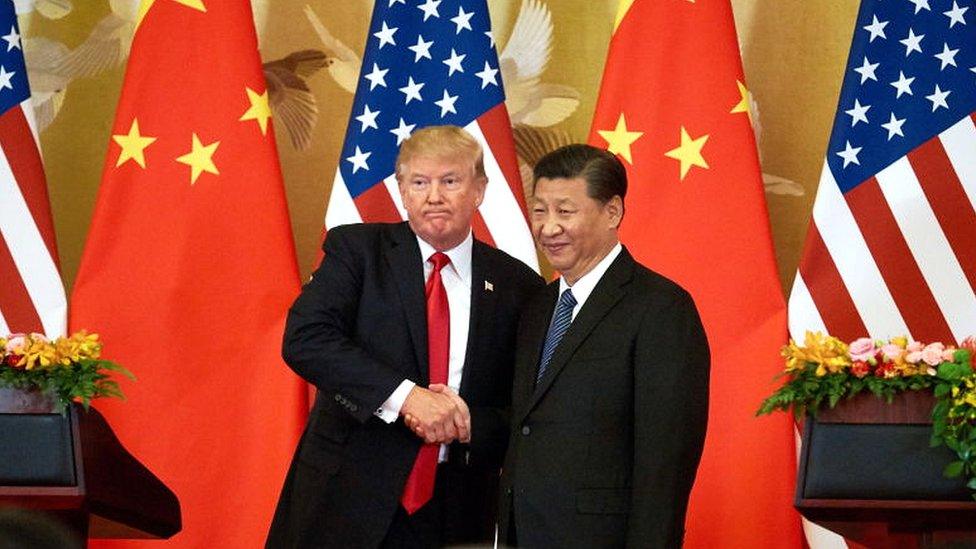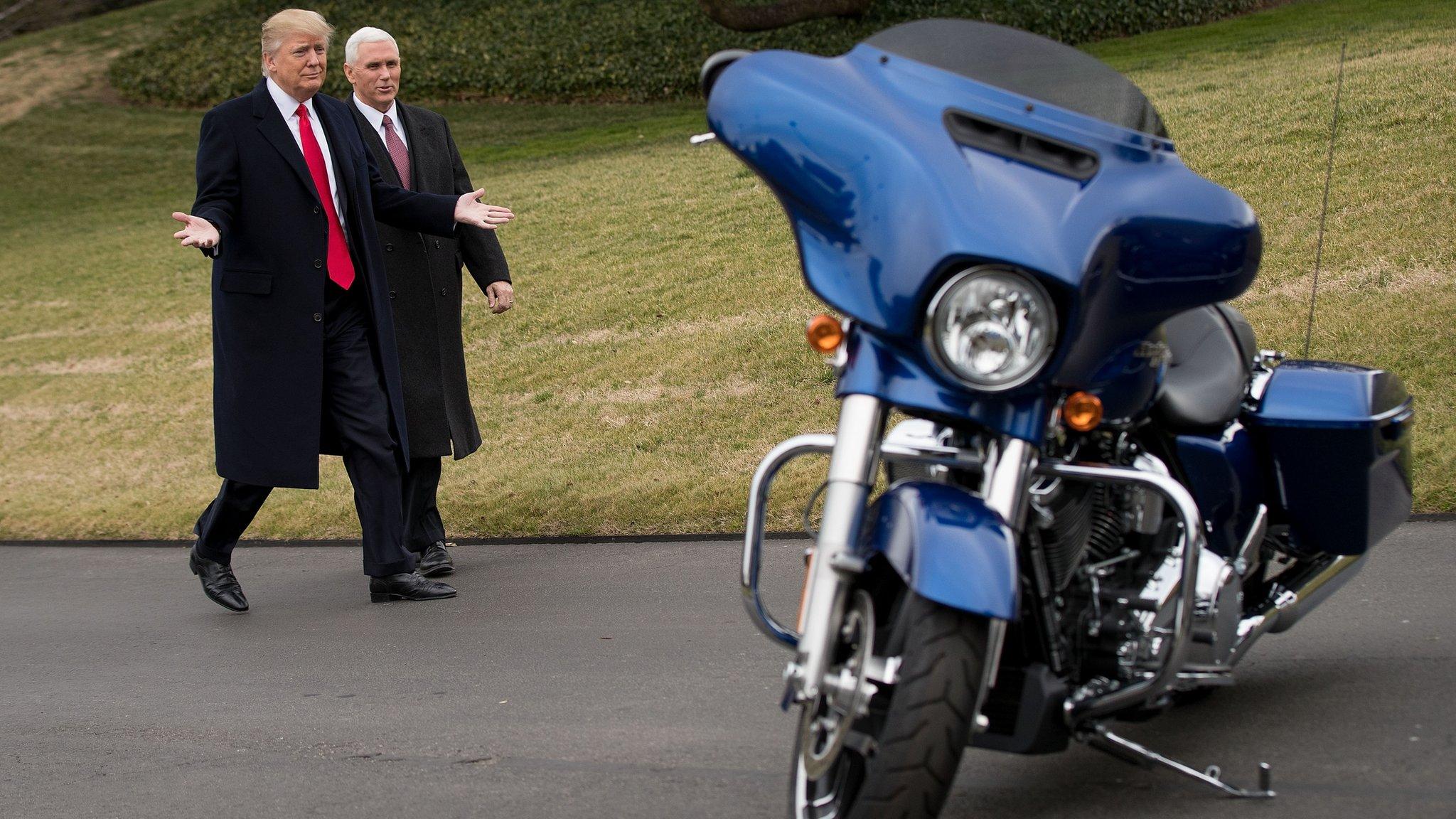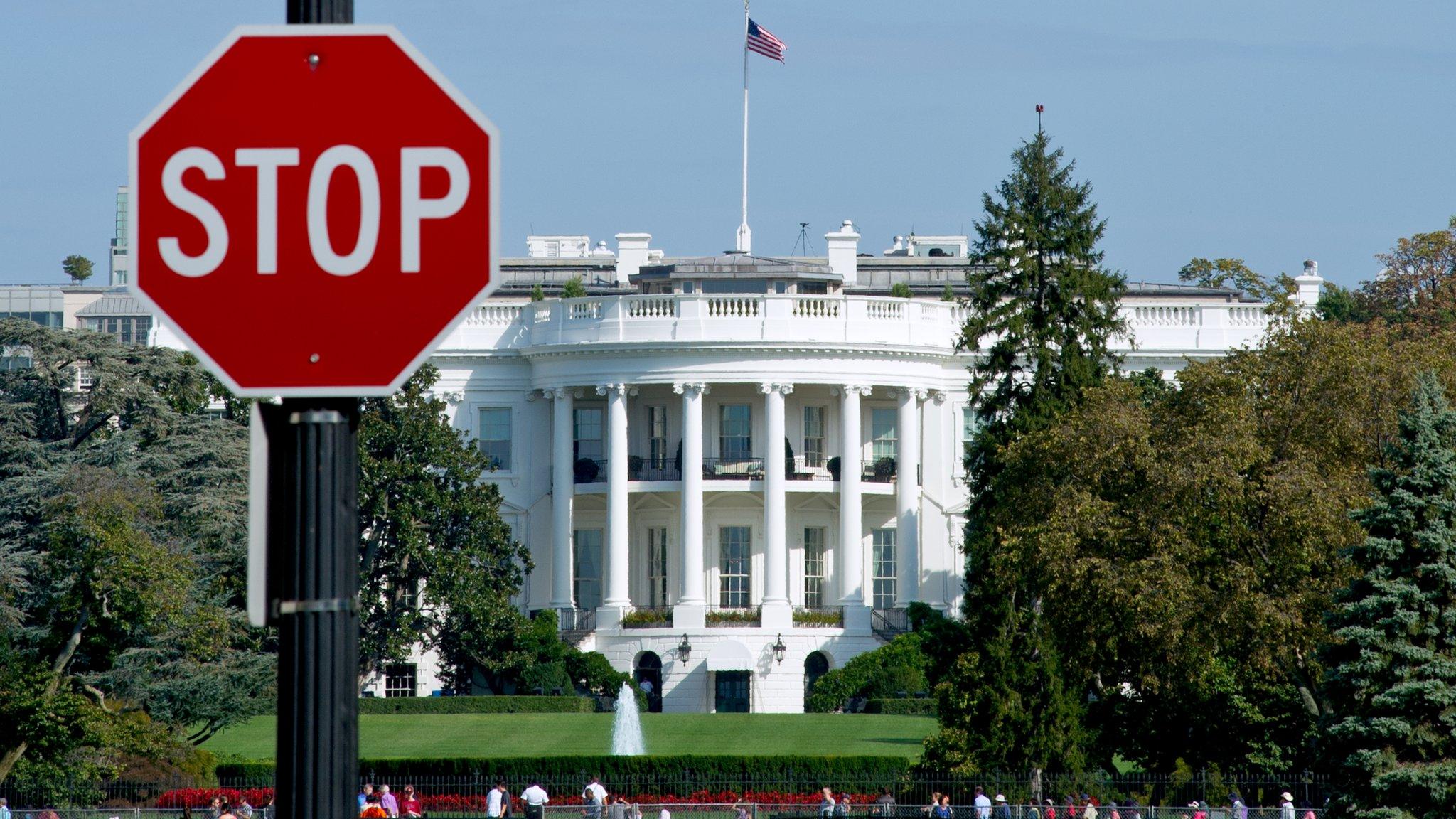US stocks slide on escalating US-China trade tensions
- Published

US stock markets tumbled on Monday led by technology companies as concerns over escalating trade tensions between the US and China hit investors.
The Nasdaq ended more than 2% lower, while the Dow Jones Industrial Average and the S&P 500 dropped more than 1.3%.
The US is set to announce new rules to curb Chinese investment in critical US technology.
The measures are part of a broader dispute over intellectual property.
The US claims that China's government unfairly supports Chinese companies in certain strategic industries.
After talks over the issue broke down this spring, the US and China said they would both apply new tariffs to billions of dollars worth of goods from each other's country on 6 July.
The White House is also expected to unveil new rules later this week that would restrict Chinese investment in US technology such as robotics and aerospace.
Bloomberg reported, external that the White House is planning to take a hard line, against the advice of US Treasury Secretary Steven Mnuchin.
Meanwhile, the Wall Street Journal reported , externalthat measures would likely target investments in the US by any company with at least 25% Chinese ownership, as well as exports of technology by US firms.
Intel, which derived almost a quarter of its sales from China last year, was one of the biggest losers on the stock market with its share price falling by more than 3%.

US President Donald Trump and China's President Xi Jinping
Apple, which also relies on China for production and significant sales, saw its share price decline by about 1.5%.
US Treasury Secretary Steven Mnuchin denied both reports.
He said the restrictions will not be specific to China but would apply "to all countries that are trying to steal our technology".
The comments put pressure on markets, but they climbed back from earlier lows after White House trade adviser Peter Navarro later told CNBC that there was "absolutely nothing on the table" with respect to other countries.
Allow X content?
This article contains content provided by X. We ask for your permission before anything is loaded, as they may be using cookies and other technologies. You may want to read X’s cookie policy, external and privacy policy, external before accepting. To view this content choose ‘accept and continue’.
He said markets have misunderstood the president's plans.
Most economists warn that tariffs, including ones the US has imposed on foreign steel and aluminium, are disrupting supply chains and risk discouraging investment and hiring.
Those costs are starting to sink in.
Harley-Davidson shares fell almost 6% after the firm said it would absorb the higher costs of new tariffs on motorcycles imposed by the EU, adding millions to its expenses.
It said it would shift some production out of the US to try to avoid the costs.
Bill Adams, a senior economist at PNC Bank, said: "The US and Chinese government have strong incentives to de-escalate trade frictions, but the new strategy of retaliating against retaliation makes a trade war a less farfetched risk to the outlook."
- Published25 June 2018

- Published21 May 2018
